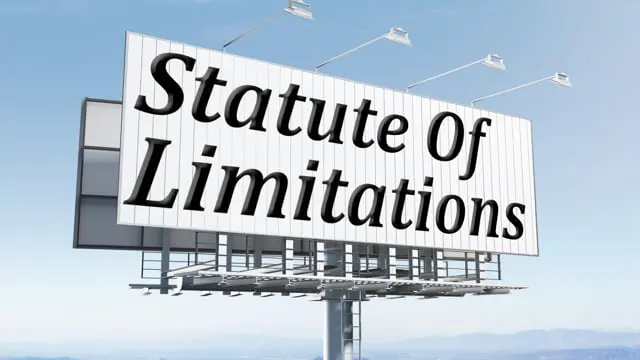Defamation is a serious issue that can significantly damage an individual’s reputation, career, and personal life. Understanding the grounds for suing for defamation is essential if you believe you have been defamed and are considering taking legal action. Defamation law is designed to protect people from false statements that harm their reputation, but proving a defamation case requires meeting specific legal criteria. This article will explore the essential elements of a defamation claim, the types of defamation, and the potential defenses against such claims, offering comprehensive legal advice on how to navigate these complex issues.
Understanding Defamation: Libel vs. Slander
Defamation is categorized into two types: libel y slander. Both involve making false statements that harm someone’s reputation, but they differ in their format and the required proof.
Libel: Libel refers to defamatory statements made in a fixed medium, typically written or published online, such as newspapers, blogs, or social media posts. Because libel is recorded, it is often considered more harmful than slander, as it has a lasting impact. To win a libel case, the plaintiff must prove that the defamatory statement was published, false, injurious, and unprivileged.
Slander: Slander involves defamatory statements made verbally. Unlike libel, slander is not recorded and typically requires the plaintiff to prove that the statement caused specific harm. Slander cases can be more challenging to prove due to the lack of physical pruebas, but if the slanderous statement falls under certain categories, known as slander per se, the plaintiff does not need to prove actual damages. These categories include statements that imply criminal behavior, sexual misconduct, a loathsome disease, or professional incompetence.
Key Elements of a Defamation Claim
To establish a defamation claim, the plaintiff must prove several key elements. Understanding these elements is crucial for anyone considering legal action for defamation.
1. A False Statement: The cornerstone of any defamation claim is a false statement presented as a fact. Opinions, even if harmful, are not considered defamatory under the law. The statement must be objectively false, meaning it can be proven false based on evidence. For example, saying someone “is a criminal” without evidence to support this claim can be defamatory if untrue.
2. Publication: For a statement to be considered defamatory, it must have been published or communicated to a third party. This does not necessarily mean printed in a newspaper; rather, it means the statement was shared with at least one person other than the subject. Publication can occur in various forms, including online posts, spoken words, or written communications.
3. Injury to Reputation: The plaintiff must demonstrate that the false statement caused harm to their reputation. This can include loss of business, social exclusion, or emotional distress. In some jurisdictions, injury to reputation is presumed in cases of libel or slander per se, but in others, the plaintiff must provide concrete evidence of the harm caused.
4. Unprivileged Statement: The statement must not be protected by any legal privilege. Certain communications are considered privileged under the law and cannot be the basis of a defamation claim. For example, statements made in court or during legislative proceedings are typically privileged, even if they are defamatory.
Defenses Against Defamation Claims
Several defenses can be used to counter a defamation lawsuit. Understanding these defenses is important for both plaintiffs and defendants in a defamation case.
1. Truth: The most robust defense against a defamation claim is truth. If the defendant can prove that the statement in question is true, the defamation claim will not stand. The burden of proof lies with the defendant to show that the statement was factually accurate.
2. Opinion: Statements that are clearly identified as opinions, rather than facts, are not considered defamatory. For a statement to qualify as an opinion, it must be understood as a subjective view that cannot be objectively verified. For example, saying, “I think John is unreliable” is typically seen as an opinion rather than a factual assertion.
3. Privilege: As mentioned earlier, some statements are protected under legal privilege. Absolute privilege applies to statements made in specific settings, such as courtrooms or legislative debates, where open communication is encouraged without fear of litigation. Qualified privilege applies to statements made in good faith on matters of public interest or duty, such as an employer’s reference for a former employee.
4. Consent: If the plaintiff consented to the publication of the statement, they cannot later sue for defamation. Consent must be explicit and informed, meaning the plaintiff understood the nature of the statement and agreed to its publication.
5. Retraction: In some jurisdictions, issuing a retraction can mitigate the damages associated with a defamation claim. A retraction is a public statement that retracts the original defamatory statement and can sometimes prevent a lawsuit or reduce the amount of damages awarded.
The Impact of Defamation on Reputation and Career
The consequences of defamation can be severe, impacting an individual’s reputation, personal life, and career. This is particularly true for professionals and public figures whose reputations are critical to their success.
Reputational Damage: A defamatory statement can cause long-lasting harm to an individual’s reputation. This damage can manifest in various ways, such as loss of trust, diminished standing in the community, and social isolation. In the age of the internet, defamatory statements can spread quickly and remain accessible for years, exacerbating the damage.
Career Consequences: For professionals, defamation can lead to significant career setbacks. False statements about one’s professional abilities, ethics, or conduct can result in lost job opportunities, demotions, or even termination. Public figures, in particular, may face heightened scrutiny, as their reputations are more exposed to public opinion.
Legal Recourse and Compensation: Victims of defamation may seek legal recourse to recover damages. Compensation can include actual damages, such as lost earnings or medical expenses related to emotional distress, as well as punitive damages in cases where the defendant’s conduct was particularly egregious. Pursuing a defamation lawsuit requires careful consideration of the costs and potential benefits, as legal proceedings can be lengthy and complex.
The Role of Social Media in Modern Defamation Cases
With the rise of social media, defamation cases have become more prevalent and complex. Platforms like Twitter, Facebook, and Instagram allow users to share information quickly, often without verifying its accuracy. As a result, defamatory statements can spread rapidly and reach a wide audience.
Challenges of Online Defamation: One of the primary challenges of online defamation is identifying the responsible party. Anonymous or pseudonymous accounts can make it difficult to trace the source of a defamatory statement. Additionally, the viral nature of social media means that defamatory content can be shared and reshared, compounding the harm and complicating efforts to remove it.
Jurisdictional Issues: Online defamation cases also raise jurisdictional issues, as defamatory statements can cross state and national boundaries. Determining the appropriate jurisdiction for filing a lawsuit can be challenging, requiring careful analysis of where the harm occurred and which laws apply.
Mitigating Online Defamation: To mitigate the impact of online defamation, individuals and businesses can take proactive steps such as monitoring their online presence, using reputation management services, and addressing false statements promptly. Legal action may be necessary in cases where the defamation has caused significant harm, but it is essential to weigh the potential costs and benefits carefully.
Trending Legal Developments in Defamation Law
Defamation law is continually evolving to address new challenges posed by digital communication and changing societal norms. Staying informed about these developments is crucial for anyone considering or facing a defamation lawsuit.
Anti-SLAPP Laws: Strategic Lawsuits Against Public Participation (SLAPP) are lawsuits intended to intimidate or silence critics by burdening them with the cost of legal defense. Anti-SLAPP laws are designed to prevent these abuses by allowing defendants to quickly dismiss meritless lawsuits. These laws are increasingly relevant in defamation cases involving matters of public concern, where the goal is to protect free speech and prevent misuse of the legal system.
Public Figures and Actual Malice Standard: Public figures, such as celebrities or politicians, face a higher burden of proof in defamation cases due to the actual malice standard established by the U.S. Supreme Court in New York Times Co. v. Sullivan. This standard requires public figures to prove that the defamatory statement was made with knowledge of its falsity or with reckless disregard for the truth. This distinction aims to balance protecting individuals’ reputations with safeguarding freedom of speech and the press.
Defamation and Privacy Laws: Recent legal developments have also seen an intersection between defamation and privacy laws. Courts are increasingly recognizing the right to privacy in defamation cases, particularly where the publication of private facts that are true but not of legitimate public concern causes harm. Understanding these evolving legal standards is crucial for both plaintiffs and defendants in defamation cases.
Steps to Take if You Are Defamed
If you believe you have been defamed, there are several steps you can take to protect your reputation and pursue legal action if necessary.
1. Document the Defamatory Statement: Collect all evidence of the defamatory statement, including screenshots, links, and witness testimonies. This documentation is crucial for proving your case in court.
2. Contact a Defamation Lawyer: Consult with a lawyer who specializes in defamation law to discuss your options. A lawyer can help you understand the legal grounds for your claim, the potential defenses, and the likelihood of success.
3. Issue a Cease and Desist Letter: In some cases, a cease and desist letter can effectively stop further defamation. This letter formally requests that the defamer cease making defamatory statements and retract any false claims.
4. Consider Settlement or Mediation: Before pursuing a lawsuit, consider alternative dispute resolution methods such as settlement or mediation. These approaches can save time and money and may result in a satisfactory resolution without the need for court intervention.
5. File a Defamation Lawsuit: If the defamation has caused significant harm and other methods have failed, filing a lawsuit may be necessary. Your lawyer will guide you through the process, from drafting the complaint to gathering evidence and presenting your case in court.
Conclusión
Comprender la grounds for suing for defamation is essential for protecting your reputation and seeking justice if you have been wronged. Whether you are dealing with libel o slander, knowing the key elements of a defamation claim, the potential defenses, and the evolving legal landscape can help you navigate these complex legal waters. With the right legal advice and strategy, you can address defamation effectively and safeguard your reputation in today’s digital age.
Attorneys.Media Video Document References
- Is Personal Injury Part of Your Law Practice?
- As an Attorney, How Are You Generating Content for Your Online Presence?
- How Can You Help Potential New Clients Get Their Questions Answered?
- How Do You Differentiate Yourself When Someone Looks Online for Help?
- How Do You Differentiate Yourself as a Criminal Defense Attorney?
- Have You Been Thinking About Video Marketing for Your Law Firm?
- Should Attorneys Use Video Marketing to Attract New Clients?
- What Do Potential Clients See When They Research Your Name Online?
- Cómo puede ayudarle Attorneys.Media








